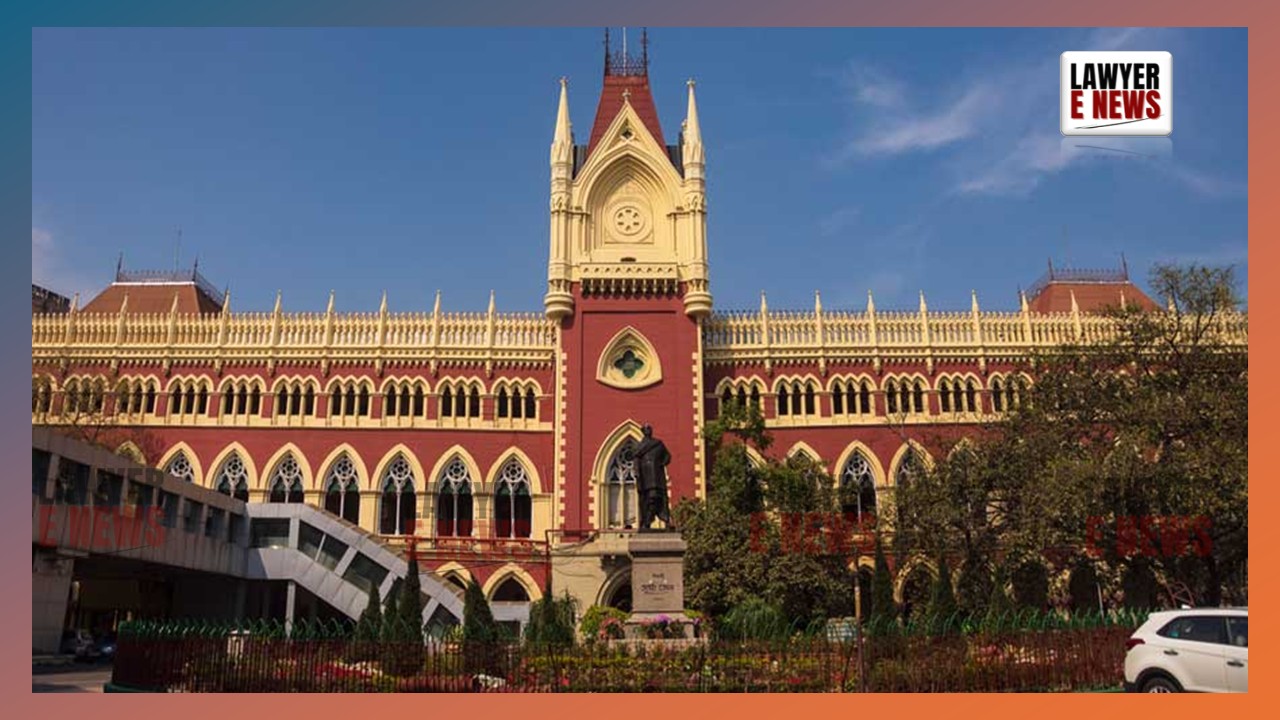-
by Admin
18 February 2026 2:25 PM



“Suspicion Alone Cannot Defeat Testamentary Intention—Valid Execution and Attestation Sufficient Under Law” – In a comprehensive and precedent-based ruling Calcutta High Court upheld the grant of probate in favour of the propounder of a Will executed in 1988, despite a delay of 19 years in filing the application. The Court rejected the contention that limitation under Article 137 of the Limitation Act barred the probate petition and found that the execution and attestation of the Will were duly proved under Section 63 of the Indian Succession Act, 1925, and Section 68 of the Indian Evidence Act.
Justice Sabyasachi Bhattacharyya, writing for the Bench, held:
“The application for probate is not for assertion of a legal right as such, but for the court’s permission to perform a legal duty created by a Will... It is a continuous right which can be exercised any time after the death of the deceased.”
The dispute centered around the last Will and Testament of Late Harendra Chandra Bysack, executed on January 20, 1988. He passed away in 1996. Probate was sought in 2015, almost two decades later, by one of his sons, bequeathing the disputed property to five sons, with the three daughters to be compensated via gift deeds. One of the daughters, the appellant, challenged the probate grant, alleging fabrication, delay, suspicious execution, and improper attestation.
Delay and Limitation
The High Court made it clear that Article 137 of the Limitation Act does not strictly apply to probate proceedings. Citing the Supreme Court in Sameer Kapoor v. State and its own Division Bench ruling in Achin Ghosh, the Court reiterated: “The right to apply for probate accrues not necessarily upon the death of the testator but when circumstances necessitate such application—such as when the Will is challenged, as occurred here when the daughters filed a partition suit in 2015.”
Thus, the filing of the probate petition immediately after the partition suit was deemed justifiable, and delay alone could not constitute suspicious circumstances.
Due Execution and Attestation of the Will
The Court emphasized that the Will had been properly executed and attested in compliance with Section 63 of the Indian Succession Act. The surviving attesting witness, P.W.2, confirmed the testator signed in the presence of the witnesses and vice versa.
“All necessary ingredients of Section 63 having thus been satisfied, no further proof was required under Section 68 of the Indian Evidence Act,” the Court ruled.
Minor discrepancies in testimony were dismissed as natural, especially considering that the deposition was taken more than 30 years after the Will’s execution.
Suspicious Circumstances—Not Substantiated
The Court thoroughly rejected all allegations of suspicious circumstances. On the appellant’s claim that the Will bore signs of interpolation and mismatched signatures, the Court held:
“No expert evidence was sought, and the alleged discrepancies are minor and within the normal range. The so-called smudging or overwriting in the word ‘Cal’ is not sufficient to prove fabrication.”
On the argument that one legatee died before the testator and no revision was made to the Will, the Court clarified: “Subsequent death of a legatee does not invalidate the Will. It is a post facto event and, in fact, enhances the genuineness of the Will since a fabricated document would have reflected such death.”
The Court also rejected the claim that the Trial Court failed to frame issues regarding suspicious circumstances. It cited issues explicitly addressing forgery, undue influence, and the testator’s mental condition.
“The parties went to trial fully aware of the objections. The matter was properly adjudicated. There is no procedural failure warranting appellate interference.”
The Calcutta High Court upheld the Testamentary Court’s decision to grant probate, holding that the Will had been executed and attested in accordance with the law, and that no real suspicious circumstances existed to cast doubt on its genuineness.
“The Testamentary Court is a court of conscience—it is not to seek faults, but to honour the last wishes of the deceased where the law is complied with,” the Bench concluded.
Date of Decision: April 22, 2025
